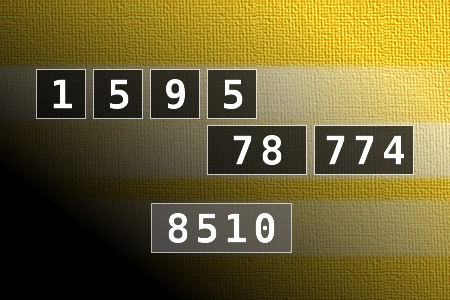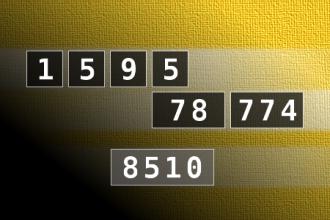Calculate the number 8510
NUMBERMANIA: Calculate the number 8510 using numbers [1, 5, 9, 5, 78, 774] and basic arithmetic operations (+, -, *, /). Each of the numbers can be used only once.Correct answers: 21
The first user who solved this task is Djordje Timotijevic.
#brainteasers #math #numbermania


